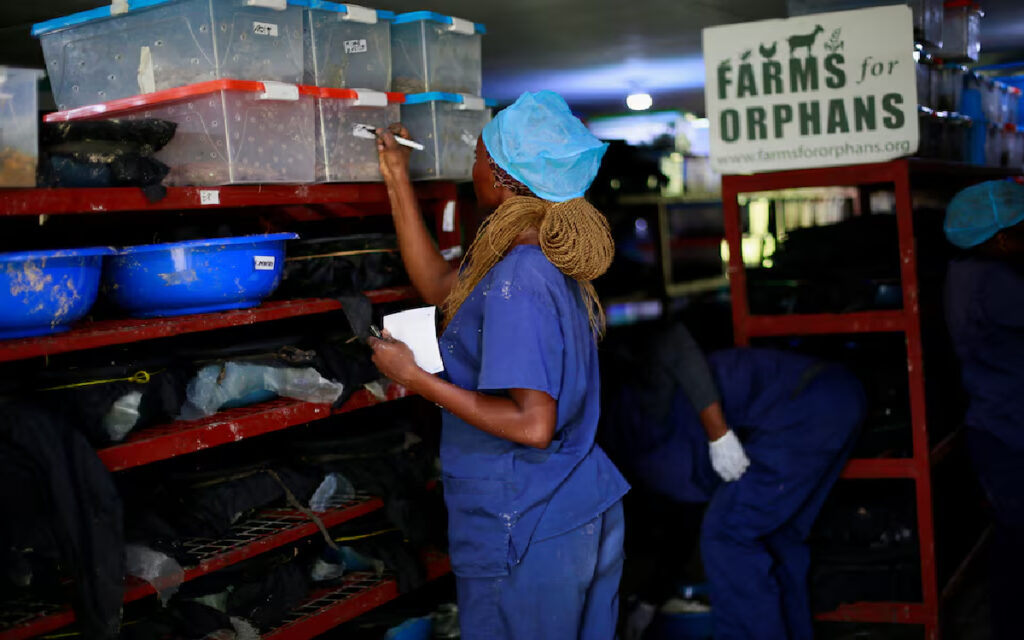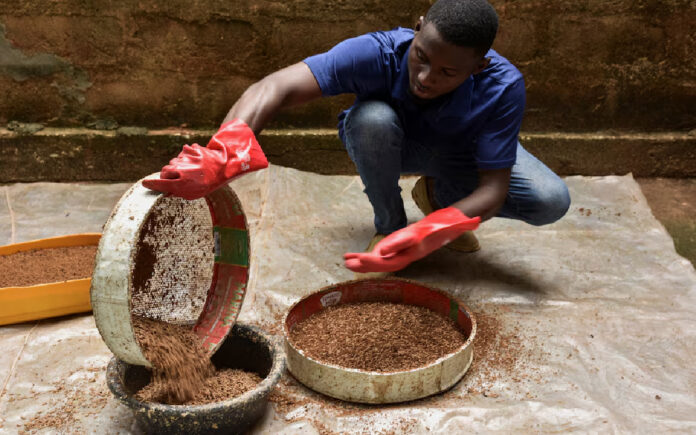Kinshasa: In Kinshasa, the capital of the Democratic Republic of Congo, over 60 children at an orphanage nervously eyed plates of palm weevil larvae seasoned with spices before cautiously tasting the thick, white worms.
The initiative is part of Farms for Orphans, a nonprofit based in Kinshasa, aiming to combat malnutrition in the country. Approximately a quarter of the DRC’s 99 million people face food crises, and half of all orphans suffer from malnutrition, according to the World Food Programme.
Edible insects like larvae are increasingly recognized for their potential as sustainable protein sources, whether for human consumption in Congo or as animal feed in Benin. The UN Food and Agriculture Organization notes insects’ richness in fat, protein, vitamins, fiber, and minerals.
Francoise Lukadi, an agricultural engineer leading Farms for Orphans, emphasized the larvae’s nutritional value, crucial for malnourished children under five. The larvae, cooked with onions, peppers, and tomatoes, offer a cheese-like taste.
Also Read | EU Court Urges Italy to Close Taranto Steel Plant Over Environmental and Health Concerns
“It is important for children to eat mpose because of the proteins, because some children are abandoned in a state of malnutrition,” said Nelly Mimpi, a nutritionist at the orphanage.
Initially supported by the Bill and Melinda Gates Foundation, Farms for Orphans now aims for commercial production to sustain orphanage donations. They currently supply palm larvae to four Kinshasa restaurants, responding to rising local demand.

Also Read | Julian Assange and WikiLeaks: A 14-Year Legal Saga Explained
While the organization explores sustainable larval farming methods at the University of Kinshasa and the National Institute of Biomedical Research, challenges remain in scaling up production due to resource constraints.
In Benin, farmers like Jules Mahinou of the Elevart Group breed black soldier flies to produce protein-rich larvae for animal feed, hoping to mechanize operations to meet demand for fish and soybean meal substitutes.



